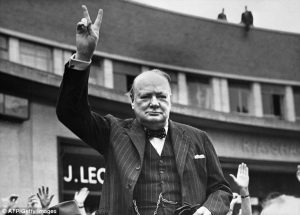Elite’s Power, and Interests in Britain
There is another important factor beside location of London and the conurbations which has made the United Kingdom a homogeneous society. Unlike other European countries and even North America, Britain does not possess a ‘peasant class’, which lives separately from the rest of the community with its own traditions. First of all, the agricultural population in Britain is small. This is because in the course of the nineteenth century agriculture diminished so rapidly that, around 1930, it appeared on the point of disappearing altogether. Secondly, the agricultural community in Britain is much more integrated to the social structure of the nation than in other countries. The reason for this is that, while British agriculture was transformed by an economic revolution in the eighteenth and nineteenth centuries, the type of social revolution which took place on the land in other parts of Europe never took place in Britain. From 1789 onwards, in France as well as in other parts of Western Europe, the main political battle was agrarian reform. There was, almost everywhere, mounting tension between landlords and farmers. Landlords voluntarily renounced their rights or were forced to abandon them. The traditional hierarchy between landlord and farmer in Western Europe consequently broke, but in Britain, the pressure on the landlords did not materialise. “In fact, the landlords were often the originators of the economic revolution of the eighteenth century. They introduced new methods. Stock raising and sheep farming were often substituted for agriculture proper. Manpower was saved and many rural workers were forced out of the land. The farmers who remained were not only probably more prosperous than their counterparts on the continent; they also continued to accept the traditional social hierarchy of landowners, farmers and labourers. The landed gentry succeeded in keeping, if not its privileges, at least its social status.”5 A peasantry, therefore, did not develop in Britain; whereas in many continental countries it grew rapidly. Independent smallholders or peasants established and still establish a class of their own in France, as they also do in many parts of Western Europe. These peasants are at the margin of industrial societies. They could be called ‘capitalists’ only because they are self-employed. They are ‘capitalists’ living in precarious conditions. They do not trust the ‘organisation’ of modern industrial societies. As well as forming their own class they also form parties. They do not recognise the centralization which modern societies impose. “They loathe the bureaucracy which is the instrument of the centralization. They have an individualistic approach to politics. In Britain, where the rural population is small, where the economic conditions under which it lives are different, where the social structure on the land has remained more traditional these disruptive tendencies have been avoided. Society did not have to reckon with the members of the farming community as an element apart.”6 They were dealt with by political parties as if they were engages in an ‘occupation’ or an ‘industry’ like any other. Major distinctions in British society are not based on geography, but on social and economic conditions. In contrast in the United State, France, Germany, or even Holland or Switzerland, it would not be possible to describe the structure of these countries, “without first considering in detail profound regional differences which are sometimes as important as national characteristics. These differences cut across nationwide social and economic problems.”7 British society is thus essentially homogeneous and integrated, except in modern social class terms. In Britain national class divisions are altogether preponderant. In Britain, class divisions play an important role in the structure of Britain society.



